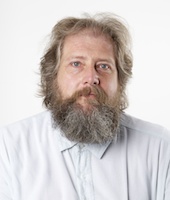Therapeutic Counselling, MSc
Make a career change into counselling or enhance your professional practice with a part-time master’s degree in therapeutic counselling with flexible entry options.
Counsellors are essential to the mental wellbeing of a wide range of people in our society. Our therapeutic counselling master's will suit anyone with prior experience in a helping capacity (e.g. social services, nursing or education) who wishes to change career. It can also help you enhance your current professional practice with its insight into the theory and practice of counselling and psychotherapy.
You'll be taught by a team of clinical- and research-active experts, who will provide a range of therapeutic counselling techniques derived from Clarkson's integrative model of the therapeutic relationship (2003). You'll also learn to examine and reflect upon counselling theory in relation to contextual and cultural issues. Graduates of this course will fulfil the training needs for British Association for Counselling and Psychotherapy (BACP) accreditation.
Please note that some of the course will be delivered online in order to prepare you for the possibility of completing some working across online and telephone platforms while completing the supervised practice requirements of the course.
School
Location
Duration
3 year part-time
Start month
September
Fees information
For fee information related to this course, please see fees section below
What you should know about this course
What you will study
About the course team
Welcome to our MSc in Therapeutic Counselling. We pride ourselves on combining high-quality teaching with world-class research and a vibrant student experience. Our teaching staff are both clinical and research active and are experts in their fields. Over 60% of our teaching team holds a teaching qualification.
Come and meet us
We are offering virtual events so you can still experience how Greenwich could be the right university for you.
Next Open Days
Got a question?
To find out more about our Open Days and Campus Tours or if you need any assistance, please email opendays@gre.ac.uk.
Entry requirements
An undergraduate (honours) degree at 2:1, or above.
If your first degree does not have an experiential counselling skills element then you will be required to obtain, as a minimum, a level 3 certificate in counselling skills which must include at least 26 hours of taught contact time that will need to be evidenced in your application.
For more information, use our contact form or call us on 020 8331 9000.
You can also read our admissions policy.
Further information about entry
Applicants must have some experience of working with people in a helping capacity.
Suitable applicants will be required to:
- Provide a personal statement of at least 500 words on your interest in pursuing counsellor training.
- Submit an essay
- Attend a group information session
- Attend an interview.
Available to overseas students?
No
Can I use Prior Learning?
This course does not provide Prior Learning.
How you will learn
Teaching
Your studies will comprise of one afternoon and evening per week for three terms in Years 1 and 2, and for two terms in Year 3. Please note that some teaching will be delivered online.
Class sizes
Class sizes vary by module. Lectures are normally attended by larger groups, and seminars/tutorials by smaller groups. This can vary more widely for modules that are shared between degrees. All students will have opportunities for 1-to-1 time with their tutors.
Independent learning
Outside of timetabled sessions, you will need to dedicate time to self-study to prepare for coursework, presentations and exams. Our library and online resources will support your further reading and research. You will spend time in placements throughout the course, and clinical supervision and personal therapy are additional commitments.
Overall workload
Your overall workload consists of contact hours (lectures, seminars, etc), independent learning, and assessments. You should expect to spend at least eight hours a week studying outside of University attendance.
Assessment
You will be assessed through coursework and continuous assessment.
Feedback summary
Information coming soon.
Dates and timetables
Full teaching timetables are not usually available until term has started. For any queries, please call 020 8331 9000.
Fees and funding
University is a great investment in your future. English-domiciled graduate annual salaries were £10,500 more than non-graduates in 2023 - and the UK Government projects that 88% of new jobs by 2035 will be at graduate level.
(Source: DfE Graduate labour market statistics: 2023/DfE Labour market and skills projections: 2020 to 2035).
| Cohort | Full time | Part time | Distance learning |
|---|---|---|---|
| Home | N/A | £2,296 per 30 credits | N/A |
Accommodation costs
Whether you choose to live in halls of residence or rent privately, we can help you find what you're looking for. University accommodation is available from £126.35 per person per week (bills included), depending on your location and preferences. If you require more space or facilities, these options are available at a slightly higher cost.
Scholarships and bursaries
We offer a wide range of financial help including scholarships and bursaries.
Greenwich Progression Bursary
£3,000 bursary for home fee paying University of Greenwich final year undergraduate students and Alumni.
Financial support
We want your time at university to be enjoyable, rewarding, and free of unnecessary stress, so planning your finances before you come to university can help to reduce financial concerns. We can offer advice on living costs and budgeting, as well as on awards, allowances and loans.
Further costs may include (but are not limited to):
- Resources : you may need to purchase books for your studies, as well as photocopying (estimate, £200 per year)
- Memberships : you will be required to become a student member of BACP, our professional validating body
- DBS and OH checks : you must have up-to-date DBS checks and OH screening, or evidence that these are not required. Fees are payable for these (estimate around £70 currently)
- Personal therapy: 40 hours of personal therapy is also required by the end of Year 2. This will cost around £40 (upwards) per hour
- Supervision: whilst most placements provide clinical supervision sometimes a student may have to access supervision on a private basis (estimated costs £40-60 per hour)
- Report writing : whilst most placements will provide reports on students (for course assessment purposes) for free some may charge for this (estimated costs £10-40 per report).
Careers and placements
Will I have a work placement?
All students are required to be in a suitable placement throughout the course. You are responsible for arranging your placement with support from course staff.
How long is my placement?
You will need to be in a suitable placement throughout your time on the course. This will be both in term time and outside of it and usually on a weekly basis.
What sort of careers do graduates pursue?
Graduates from the MSc Therapeutic Counselling course can pursue careers as professional counsellors or use the transferable counselling skills in a range of other professions (e.g. pastoral support; advice services etc.).
Do you provide employability services?
Our services are designed to help you achieve your potential and support your transition towards a rewarding graduate career.
The Employability and Careers Service provides support when you are preparing to apply for placements and graduate roles. It includes CV clinics, mock interviews and employability skills workshops.
Each School also has its own Employability Officer, who works closely with the industry and will provide specific opportunities relevant to your own course.
Accommodation
Greenwich
Living in halls of residence is a great way to make new friends and get into the social side of university life. With four great locations, all minutes away from the campus and the centre of historic Greenwich , you will be at the heart of one of the most beautiful university settings in the UK.
Rooms start at £146.30/wk and include Wi-Fi, utility bills, access to our on-campus gym and 24-hour security - and just a 10-minute train journey to central London. Students based at our Greenwich campus can also choose to live the Student Village at Avery Hill, which is only a short ride on our free shuttle bus.
Support and advice
Academic skills and study support
We want you to make the most of your time with us. You can access study skills support through your tutor, our subject librarians, and our online academic skills centre.
Where appropriate, we provide support in academic English and mathematics. If you need to use particular IT packages for a specific module, we provide training for this.
Support from the department
All students are able to access the support services provided by the Student Wellbeing Service.
Not quite what you were looking for?
We've got plenty of other courses for you to choose from. Browse our postgraduate courses or check our related courses below.....
Health and social care at the University of Greenwich
You’ll learn from our expert, research-active tutors and be well supported during your work placement. You’ll benefit from great job prospects thanks to our strong links with NHS trusts and social care providers.
Visit our health and social care degrees page.
A comprehensive guide to our new physiotherapy course with Mark Dayson
Embark on an exhilarating path with our latest BSc Hons Physiotherapy course. This hands-on, practical course readies you for the clinical realm through immersive practice placements and beyond.
Health and social care degrees
Psychology at the University of Greenwich
Gain an understanding of human behaviour and mental processes and develop your research skills. Many of our courses are accredited by the British Psychological Society and some include study in fields related to psychology, such as counselling.
Visit our psychology degrees page.
Mode of study
Select from the dropdown below.
| Course level | |
| UCAS code | |
| Duration | |
| Location |








